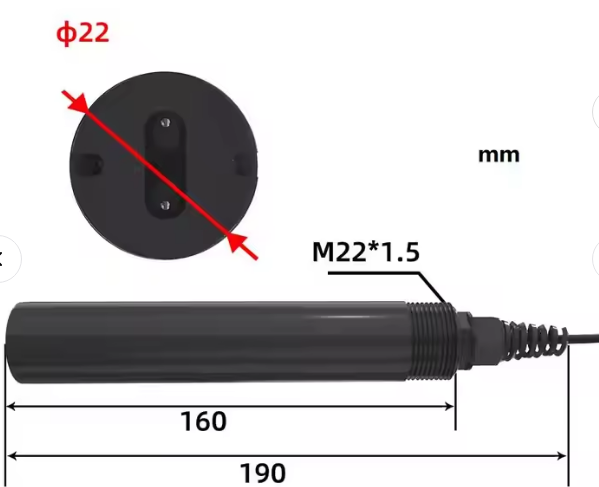— Driven by Tightening Environmental Policies and Technological Innovation, the Asian Market Leads Global Growth
April 9, 2025, Comprehensive Report
As global water pollution issues become increasingly severe, water quality monitoring technology has become a core part of environmental strategies in many countries. Latest market research indicates that the global online turbidity sensor market is expected to reach $106.18 billion by 2025 and exceed $192.5 billion by 2034, with a compound annual growth rate (CAGR) of 6.13%. This growth is primarily driven by tightening environmental regulations, the proliferation of smart water management systems, and upgraded demands for industrial wastewater management.
1. Market Driving Factors Analysis
Environmental Policies Driving Industry Upgrades
-
North America and Europe: The U.S. Environmental Protection Agency (EPA) and the European Union’s Water Framework Directive mandate that businesses and municipal water treatment plants employ high-precision turbidity sensors to ensure compliance with discharge water quality standards.
-
Asian Market: China’s “Water Ten Measures” policy is accelerating the upgrade of water treatment facilities, while India’s National Water Mission is speeding up the procurement of water quality monitoring equipment.
Integration of Smart Water Management and IoT
Modern turbidity sensors are integrated with wireless technologies such as Bluetooth, Wi-Fi, and LoRaWAN, enabling real-time cloud data transmission and reducing the costs associated with manual inspections. For instance, smart water management systems in Germany and Singapore have achieved remote alerting and automatic regulation, significantly improving monitoring efficiency.
Surge in Municipal and Industrial Demand
-
Municipal Water Treatment: Global drinking water facilities are adopting online turbidity meters to monitor drinking water safety. For example, a water plant in Beijing has reduced turbidity exceedance rates by 90% through real-time data monitoring.
-
Industrial Wastewater: The chemical and pharmaceutical industries rely on these sensors to optimize treatment processes and avoid substantial environmental fines.
2. Regional Market Landscape
| Region | Market Characteristics | Representative Countries | Growth Drivers |
|---|---|---|---|
| North America | Technology leading, strict regulations | USA, Canada | EPA standards, industrial demand |
| Europe | Mature market, high intelligent rate | Germany, France | EU environmental regulations, IoT applications |
| Asia | Fastest growth, driven by policies | China, India | Urbanization, smart city investments |
| Middle East | High demand for desalination | Saudi Arabia, UAE | Scarcity of freshwater resources |
The Asian market is particularly impressive, with China demonstrating a 15% annual increase in turbidity sensor procurement driven by “smart city” initiatives, significantly outpacing the global average.
Growing Demand for Submersible Sensors
Submersible sensors, suitable for long-term monitoring in rivers and reservoirs, are increasingly expected to meet IP68 waterproof standards.
3. Future Challenges and Opportunities
Challenges:
- Some developing countries have low sensor penetration rates due to a lack of technical awareness.
- Competing technologies (such as optical and acoustic sensors) are putting pressure on market growth.
Opportunities:
- The agricultural irrigation and aquaculture sectors present substantial growth potential; for example, turbidity monitoring has been widely adopted in shrimp farms across Southeast Asia.
- Carbon neutrality policies are spurring green water treatment technologies, such as solar-powered sensors.
Conclusion
The global turbidity sensor market is entering a “golden decade” characterized by technology innovation and policy benefits. Asia is likely to become the central hub for future growth. As the United Nations advances its 2030 Sustainable Development Goals, water quality monitoring will become a global consensus, and companies along the related industry chain are expected to continue benefiting.
For more information about water sensors, please contact Honde Technology Co., Ltd.
Email: info@hondetech.com
Company website: www.hondetechco.com
Tel: +86-15210548582
Post time: Apr-09-2025


